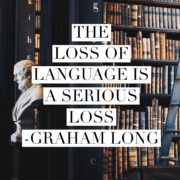15
Mar
2018
Dear Inner Circle,
A couple in their late seventies, who had been together for fifty years, presented here about a month ago to sign up to get married. They were both quietly spoken and it was difficult to discover why they had decided to make their marriage a legal arrangement at this late stage of their lives. They didn’t need to offer an explanation to us for their action and we were happy to do all we could to make this a beautiful wedding. They arrived yesterday and our Op Shop found something lovely for the bride to wear. Some of our marketing people nipped out to the local florist and returned with a beautiful bouquet of flowers for the bride. Pastor Jon conducted this wedding on our rooftop garden. The bride walked down the aisle with a beautiful volunteer on one arm and a beautiful member of our Aboriginal community on the other. Jon invited the couple to exchange rings and the groom said, “I bought her a ring a few years ago and she lost it. I’m not buying another one!” It doesn’t sound like a romantic moment, but I suspect it will live on as a precious memory for both of them. It was easy for the couple, the witnesses and Jon to fit in our lift and as it opened on the ground floor, our staff and volunteers welcomed the couple like they were rock stars. A lovely Wayside moment.
When you watch a life implode, there is an unmistakable loss of language that bears witness to loss of identity and character. All of us who are “by the Wayside”, live in an atmosphere of limited vocabulary. I’ve heard the “F” word used to construct whole sentences; most nouns here are “F…’n” things. I’ve heard it as a proper noun. It’s often a preposition, many things are “up” around here, qualified as, “F…’d up”. I’ve heard it used even as an adverb. My concern is not merely with acceptable and unacceptable words, but with the loss of words. The loss of language is a serious loss. It can ultimately render anyone an alien in their own surroundings. I’ve sat with people who might as well have just opened their mouth and made the sound, “Baaaaah!” This troubles me for a few reasons. Inarticulate frustration catches. Prolonged existence in a world of tiny vocabulary will diminish the capacity for communication. All of us at Wayside need to check occasionally that we can still hear an English sentence (rather than simply recognise the words) and still form a considered response. Nothing is more human than a conversation. It also troubles me because while the wordless can express raw emotion with some power, they are doomed to an ever exaggerated expression in what amounts to solitary confinement. With ever increasing displays of emotion comes the haunting certainty that nobody is listening. It’s why I’m keen for our staff members to take all their holidays each year and to put themselves in the company of others who expect to be heard and expect a considered, articulate response. We ought to listen to ourselves, as sometimes I do, to my own horror. The frequent use of just a handful of words, particularly expletives, should set off an alarm that allows us to recognise the depletion of the most precious faculty of all, our ability to use language to meet and be with others. There is a world of difference between the word as mere self-expression and the word as an act that finds the middle ground between you and me.
Keep reading here.



